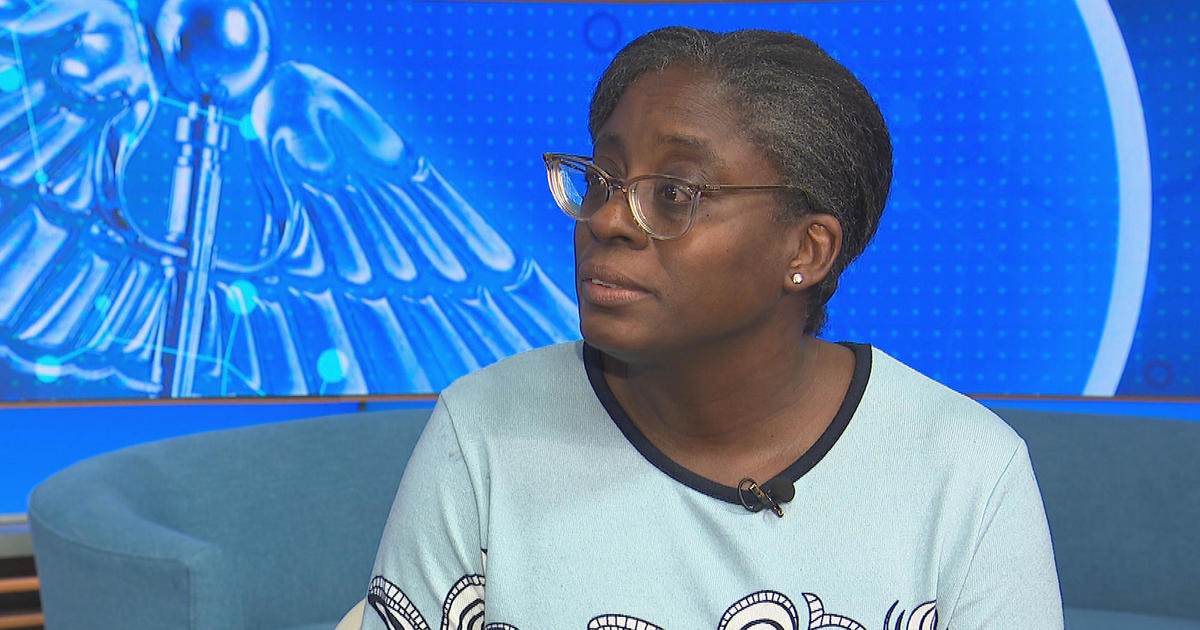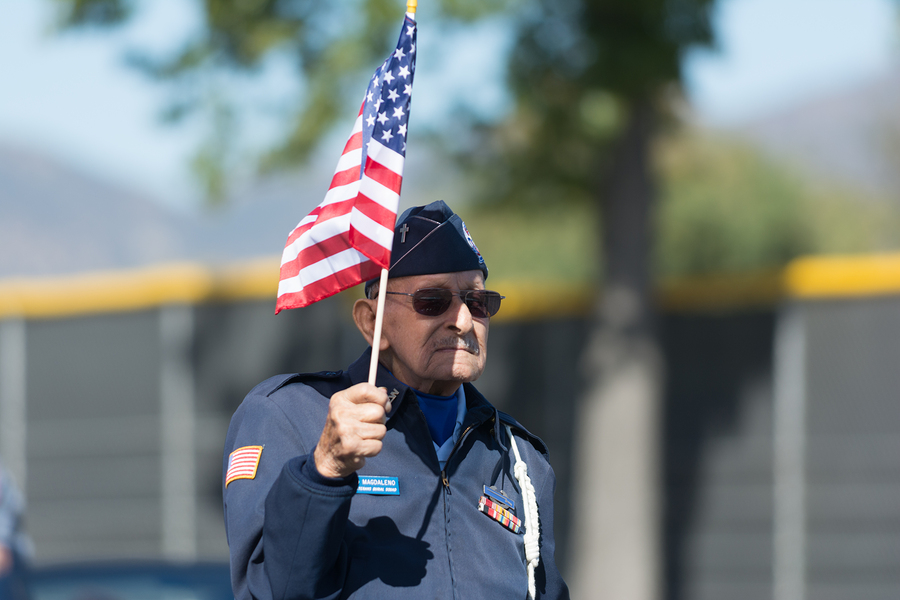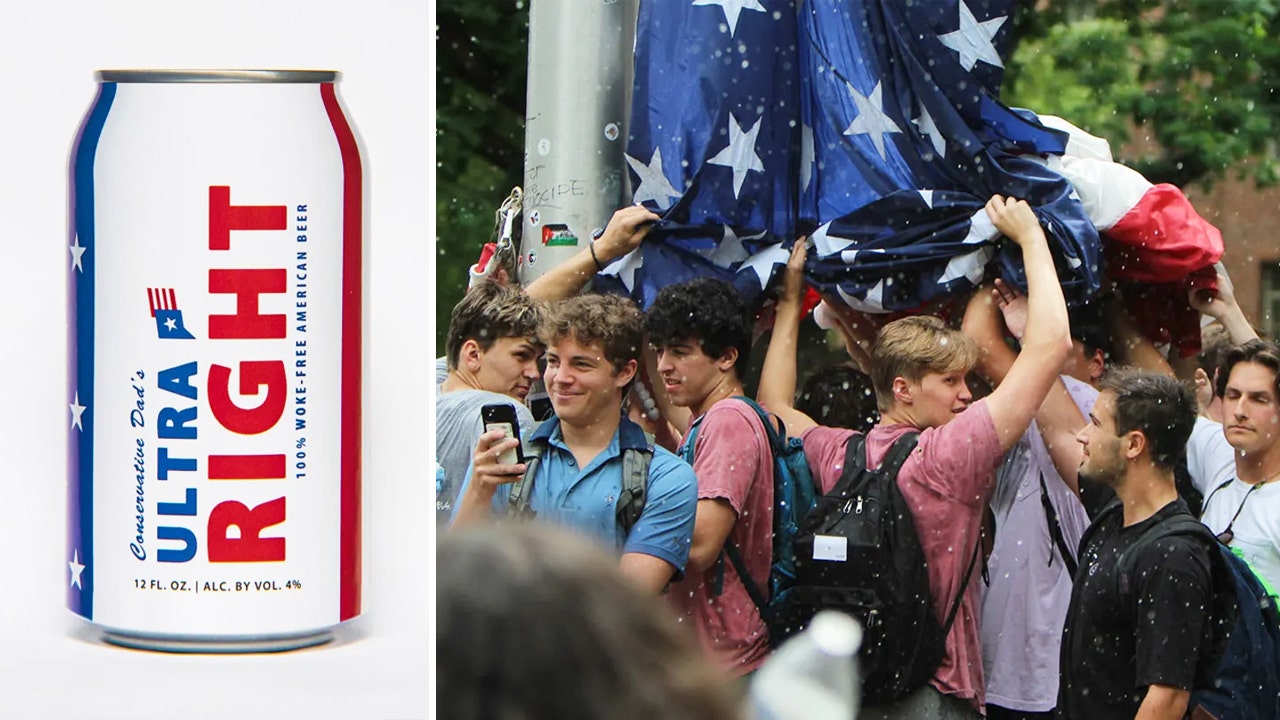Massachusetts
Dr. Ridiane Denis helps Haitian migrants prepare for new lives and jobs in Massachusetts

BOSTON – Dr. Ridiane Denis doesn’t hesitate when asked what she wants people to know about the Haitian migrants looking for work in Massachusetts. “I want them to know they are hard workers,” Denis said.
With thousands of Haitian people moving into Massachusetts and migrant shelters filling up, she felt compelled to help. The idea for a volunteer-led job training program came to her in a brainstorming session at her kitchen table with her partner, Guichard Rodriguez. In 2023, she founded the non-profit Massachusetts Integrative Resources. The word integrate, she says, is central to the group’s mission. “If you’re from somewhere else, you want to be integrated,” she said. Once she established MAIR, she put out the word that she was ready to begin training migrants for direct support personnel positions-jobs in group homes, day programs, and assisting the elderly.
Dr. Denis is Director of Clinical Research and Operations, General Clinical Research Unit (GCRU) at Boston University Medical Campus. (She is also a mother of four sons who is only half-joking when she says she works 30 hours a day.) With volunteers ready to help and migrants eager to learn, all she needed was a training space. That quest led her to Waltham and a kindred spirit in Gabriel Vonleh, CEO of Opportunities for Inclusion.
“They believe in the American dream. So, let’s make it happen for them!” Gabriel said smiling. “This was our way to give back to people who were not looking for handouts.” He says, when Dr. Denis approached him about using space in the building, he was happy to oblige. “This was a no-brainer.”
Opportunities for Inclusion serves people with intellectual and developmental disabilities and their families. Its Waltham building is bustling Monday through Friday. But there was plenty of free space on weekends. Dr. Denis’ Saturday training sessions began in October. The first week, there were 13 students. The following week attendance more than doubled. Students were excited for the training, even if getting to Waltham was a challenge. Some came from as far away as Brockton and left as early as 4:30 a.m. to arrive in Waltham on time. On more than one occasion, Dr. Denis and Guichard rented vans at their own expense to transport migrants to and from the training sessions. “They make me want to help them because they want it so much,” she explains. “They are my motivation.”
She understands their determination. Dr. Denis was born in Boston but spent her young life in Haiti. At 11, she moved to Massachusetts permanently but continued to visit relatives in Haiti. The Haiti of her childhood, she says wistfully, was a paradise. “The Haiti I know is not there right now. I hope that one day it is,” she said. The migrants fleeing Haiti believe they can build a better life here.
Her goal is to help Haitian migrants become independent and contribute to their new home country. For four weeks, she split the day’s training-and the class itself–into two parts. All students received the same material. Students who needed extra language support got it. The first part of the day focused on life skills-taking public transportation, using an ATM, and dressing for New England winters. They practiced conversational English. For the second half of the day, they focused on clinical training. Medical terminology and word usage (“I have an ache. I have a headache. I have a runny nose.”) how to use medical equipment and-most importantly-CPR.
Dr. Denis could feel the students’ excitement as they learned because, she says, they knew what acquiring the skills could mean for their future. “We weren’t even done with the training, and they were already asking, ‘What other certification can we get? We want to grow. We want more.’” The migrants who joined the program came from all walks of life. Most fled Haiti because of the violence and instability. Many left behind family members and careers. Some were nurses and medical technicians in Haiti. Guirlande Lubin was an administrative secretary with USAID. She says she left Haiti to save her own life. “Haiti is too dangerous. Too many gangs,” she explained with the interpretive help of fellow migrant Claudel Esteve. She moved to Massachusetts to live with her sister and nieces and found a supportive community in MAIR’s training program. She also found a job.
Once the four-week session was over, Gabriel gave the students three-day internships and hired two of the graduates. Guirlande is one of them. “We had to lead by example,” he explains. “It’s one thing to give the training. But after the training, if there’s no opportunity, the training means nothing. So, it was very important to our organization to open our space but also to provide employment opportunities. It made it real. And it also sends a message to other people out in the Commonwealth to really… Come on, come on! We can do this as one big Commonwealth!”
In all, Gabriel has hired five migrants at Opportunities for Inclusion. He says they are exceptional workers-dedicated, committed and compassionate. Claudel, who was a law student in Haiti, calls the facility his “second home.” He likes the clients, his co-workers, and the work. He says it fills him with a sense of purpose. He sends part of every paycheck back to Haiti for his mother, father, and sister. He also sends them videos and prays that, one day, they will also be able to live in the United States. “Every day I take in this country I am happy,” he said.
For most of the past year, the number of Massachusetts job openings has moved between roughly 225,000 and 260,000. Many of those openings have proven difficult to fill. Gabriel points to the migrant population as part of the solution. “This is not a migrant crisis. This is a migrant opportunity,” Gabriel said. “We need to look at it from a different perspective.”
Dr. Denis agrees. She applauds state efforts to expedite working papers (including clinics designed to fast-track processing times) but says the typical months-long wait is discouraging for migrants who want to provide for themselves. “I think if we can-in any way, shape, or form-integrate them into the work force as quickly as possible, I think definitely we would see a change. The shelters won’t be as overwhelmed. The system won’t be as stressed,” Dr. Denis said.
Many of the migrants who became certified in her first training session are still looking for work. Dr. Denis and her volunteers keep in touch with them-leading conversational English discussions and job search sessions on Zoom. Right now, she has 42 migrants on a waiting list for the next session and is looking for a new training space. Much as she appreciated the Waltham space, she is looking for something more centrally located. She says it doesn’t have to be fancy. “Just a room with chairs and tables. That’s all,” she said.
Dr. Denis marvels at the migrants’ resilience. She believes in them and their ability to succeed. A year from now she hopes to have trained thousands of migrants who drive past her in their own cars on their way to their homes. “Seeing them providing for their family. Seeing a smile on their faces when they get that first paycheck. Getting a call saying thank you. That’s what makes it worth it for me,” she said.
There were many thank yous during the graduation ceremony. Their gratitude was humbling. “Very humbling to see that I could actually make a difference-or try to make a difference-in somebody’s life.” Dr. Denis continued, “Even if it’s a drop in the bucket, it makes me feel like I’m helping. That’s the most important thing for me.”
For more information about Massachusetts Integrative Resources visit mairconnect.org

Massachusetts
Red-Bellied Cooter To Headline MA Endangered Species Day

WESTBOROUGH, MA — Scores of turtles will converge on Westborough on Wednesday.
Why? To celebrate the 40th year of one of the longest-running conservation efforts in the U.S. to reinvigorate the endangered red-bellied cooter species.
Starting in 1984, the state Division of Fisheries and Wildlife embarked on an effort to increase the cooter population from a low of 300. Part of that effort involved a “head start” program where schools, museums and research groups helped raise the turtles in captivity for their eventual release.
Many of those conservation partners will head to the MassWildlife headquarters in Westborough on Wednesday to deliver their red-bellied cooters. The state expects to tag the 5,000th turtle raised in the head start program. The celebration will also mark Endangered Species Day, which will officially be observed Friday.
“Over the past forty years, MassWildlife has ‘headstarted’ over 5,000 turtles. As a result, the estimated population of northern red-bellied cooters in Massachusetts has grown from just 300 in the 1980s to over 2,000 adults today,” the agency said in a news release.
Massachusetts has the only population of red-bellied cooters in New England, with the next closest group in New Jersey. The turtles, which can live up to 50 years, and are still listed as endangered by state and federal governments.
Wednesday’s event will feature remarks by federal and state conservation officials, the Massachusetts state herpetologist Mike Jones and participants in the head start program. The event begins at 10 a.m. Wednesday at the MassWildlife headquarters, 1 Rabbit Hill Road, Westborough.
Massachusetts
2,000 migrant students added to 74 Massachusetts school districts this academic year

PEABODY – The migrant crisis in Massachusetts has added about 2,000 students to schools in 74 different districts this academic year, according to the state.
That means there are about 242 districts still not facing the issue of having a sudden, unexpected influx of migrant children in their systems.
“A small handful of communities can’t take on this burden and do it well,” Peabody Superintendent Josh Vadala told WBZ-TV. His district is one of the 74. They’ve added 80 students to Peabody schools since September.
“We’ve been talking to the state. You know, enough is enough,” Vadala said. “We’ve taken on our share and we are doing a good job. If you continue to pile on, we’re worried that we’re not going to be able to provide the same service and then it all falls apart.”
Massachusetts response to migrant student crisis
“We believe deeply that every single student, regardless of circumstance, should have a high-quality education. Every student deserves that,” Massachusetts Education Secretary Patrick Tutwiler told WBZ.
Tutwiler said the state is giving those 74 communities what they need, including $105 per student, per day.
“Language barrier is definitely a challenge. The Department of Elementary and Secondary Education (DESE) very quickly stood up translation supports. Mental health is also a significant challenge where we’re seeing really clear manifestations of the hardships that families experience coming here (and) situations where students are not familiar with the typical school routines and that takes a lot of patience,” Tutwiler said.
What’s worked so far?
The state has a task force to find solutions and determine what works, Tutwiler said.
“There are so many heartening stories around how districts have really met the moment and really transitioned and welcomed families in robust ways,” he told WBZ.
Tutwiler specifically mentioned Peabody and what Vadala has done there. He has used the whole community to help the whole family, from field trips to experiences outside the classroom.
Getting to know the families outside the school walls is paying off inside the classroom, according to Vadala.
“I’ve not seen models as robust as what we are doing. It’s not a competition but we are doing our level best to meet the needs of families here,” Tutwiler told WBZ. He said they key to all of this is more money from the federal government.
Massachusetts
HEATH: Hey, Massachusetts! Veterans, Not Illegal Aliens, Should Be Top Priority – NH Journal

The headline says it all: ‘Massachusetts kills plan to prioritize homeless veterans over migrants.’
Massachusetts legislature kills plans to prioritize homeless veterans — homeless veterans who served this country– over migrants. That’s how screwed up the priorities are in the People’s Republic of Massachusetts.
All but two Massachusetts House Democrats voted against an amendment to provide statewide shelter must give priority to U.S. military veterans over migrants on Friday. All 25 House Republicans voted for it, but just two Democrats came across the aisle. And 129 Democrats voted against it.
They’re so upside down in Massachusetts, they can’t make a basic decision. Even if you want to care for the illegal aliens, with housing and benefits and all the state provides — they had to pass almost one billion dollars in their most recent budget to pay for support for the undocumented in their state. Even if you support that spending, you can’t place a priority on veterans and housing?
In other words, Massachusetts, you can’t commit that they’re not going to kick any veteran out of housing who has served this country. If it’s any kind of housing where there’s public, taxpayer support, you can’t just say that you’re going to keep veterans in place? As opposed to displacing the veteran for someone who just came into this country and has done nothing for the United States of America?
You can’t make that decision because you’re so twisted in your head.
It’s not even a bleeding heart issue. I understand: You’re so concerned — in fact you’re fixated — on people who are coming to this country seeking asylum. But you can’t care about the less than one percent of Americans who serve in our military, in a nation of 330 million people? You can’t prioritize these people? Are you kidding me?
I wonder if that same vote we’re here in New Hampshire, what the result would be? I know the Republicans would vote against. And I really believe some Democrats would surely say “No, veterans must come first.” But I wonder how many others wouldn’t?
I’m from Massachusetts, but I had the good sense to leave decades ago. If I lived there today, I’d be so ashamed when I read that story Saturday morning. And I can’t even imagine what it’s like to be a veteran in Massachusetts and seeing that.
Wow. You’re going to kick a 78-year-old Vietnam veteran out of a housing situation in Massachusetts for someone who just came into this country illegally?
There are a lot of differences between our two states (our ‘Live Free or Die’ motto, which kicks the butt of ‘The Spirit of America’), and a major difference is our respect and appreciation for our veterans. We’re always striving to do a better job to take care of them, because we get it here.
And I believe a lot of people in Massachusetts get it, too.
The problem is, they also get what they vote for.
Ask yourself, Massachusetts: How is that working out for you?
On Wednesday, May 15, Jack Heath will be hosting the annual Veterans Count “Make 12 Hours Count” Radiothon, a day of programming presented by FedPoint, to support the local military community.
The 12-hour Radiothon will broadcast from 6 am to 6 pm. It will be an opportunity for people to hear from and support the military community. The broadcast will come from The Pulse of NH stations News Talk 107.3 WTPL, 98.1 WTSN, and 107.3 WEMJ, with additional support on music stations Frank FM, 105.5 JYY, Country 93.3 The Wolf, and Country 95.3 & 107.1 The Wolf.
To make a donation, call the radiothon phone bank at 1-844-650-VETS (8387) on May 15th from 6am-6pm, text the word VETS to 78000 or you can make a donation online at vetscount.org/nh.
-

 Politics1 week ago
Politics1 week agoHouse Dems seeking re-election seemingly reverse course, call on Biden to 'bring order to the southern border'
-

 World1 week ago
World1 week agoSpain and Argentina trade jibes in row before visit by President Milei
-

 Politics1 week ago
Politics1 week agoFetterman says anti-Israel campus protests ‘working against peace' in Middle East, not putting hostages first
-

 World1 week ago
World1 week agoGerman socialist candidate attacked before EU elections
-

 News1 week ago
News1 week agoUS man diagnosed with brain damage after allegedly being pushed into lake
-

 World1 week ago
World1 week agoGaza ceasefire talks at crucial stage as Hamas delegation leaves Cairo
-

 Politics1 week ago
Politics1 week agoRepublicans believe college campus chaos works in their favor
-

 Politics1 week ago
Politics1 week agoConservative beer brand plans 'Frat Boy Summer' event celebrating college students who defended American flag























